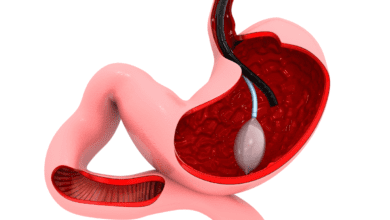Gastric Bypass May Cut Heart Disease Risk Beyond Weight Loss

A new study published in JAMA Surgery explored whether Roux-en-Y gastric bypass (RYGB) reduces cardiovascular risk factors independently of calorie restriction and weight loss.
Bariatric surgery is well-known for its effectiveness in lowering body weight and reducing heart disease risk in individuals with severe obesity. It is linked to fewer cardiovascular events and lower mortality rates. However, it has remained unclear whether these benefits stem primarily from the surgery itself, calorie restriction, or the resulting weight loss.
While RYGB is known to lower cardiovascular risks and mortality, its exact mechanisms remain under debate. Some studies have found no significant differences between gastric bypass and dietary interventions regarding insulin sensitivity, pancreatic beta-cell function, or glucose metabolism, while others suggest greater metabolic improvements following surgery.
Study Overview
This non-randomized controlled trial examined short-term changes in cardiovascular risk factors in obese patients undergoing either a very low-energy diet (VLED, <800 kcal/day) or gastric bypass combined with calorie restriction and weight loss. The COCKTAIL study, conducted at a tertiary care center in Norway, followed participants for nine weeks between 2015 and 2017, with data analyzed from 2021 to 2023.
Participants first followed a three-week low-energy diet (LED, <1,200 kcal/day), after which they either continued with VLED for six weeks (n=37) or underwent RYGB followed by VLED (n=41). Researchers compared changes in BMI, fat mass, insulin sensitivity, glucose levels, lipid profiles, blood pressure, and cardiometabolic biomarkers over six weeks.
Assessments were performed at weeks 0, 3, 5, and 9, including measurements of C-peptide, LDL, HDL, apolipoprotein B, triglycerides, total cholesterol, fat-free mass, and bile acids. Dietitians provided weekly consultations to support dietary adherence, and surgeons performed standard laparoscopic RYGB procedures.
Key Findings
Among the 78 participants (average age 48, 65% female), both groups shared similar baseline characteristics, except for a slightly higher BMI in the gastric bypass group (44.5 vs. 41.9). Despite similar fat mass loss between groups, gastric bypass led to greater reductions in key atherogenic lipids—LDL, non-HDL cholesterol, apolipoprotein B, and lipoprotein (a)—compared to VLED. Specifically, mean LDL dropped by 18 mg/dL more in the RYGB group than in the VLED group.
While both groups showed improvements in insulin sensitivity, HbA1c, and blood pressure, these benefits were mainly attributed to the initial LED phase. gastric bypass also produced unique shifts in lipid profiles and metabolites, including reductions in 21 additional lipids and a decrease in the omega-6 to omega-3 fatty acid ratio—changes not seen in the VLED group.
Conclusion
The findings suggest that RYGB reduces cardiovascular risk independently of weight loss. Specifically, RYGB significantly lowered atherogenic lipid levels beyond what could be attributed to calorie restriction and fat loss alone. Both groups experienced improvements in metabolic markers, but RYGB offered additional cardiovascular benefits, emphasizing the surgery’s unique impact on lipid metabolism.





